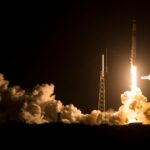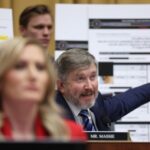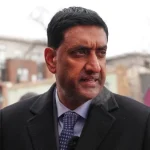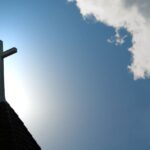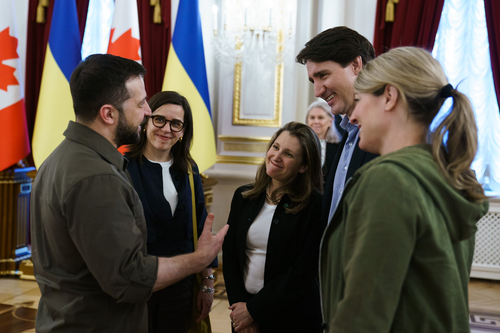
A person of Ukrainian descent to fill NATO's top post? That's what a recent New York Times report suggested could happen as it detailed "the race is on" to select NATO's next Secretary General.
"While the officials cautioned that these are early days, and very often the names that surface first do not survive the bargaining among NATO’s 30 members, they said one prime candidate has surfaced in Washington: Chrystia Freeland, 54, the Canadian-Ukrainian deputy prime minister and finance minister of Canada," NY Times wrote.

Freeland has long been seen as Ukraine's top ally within Canadian political leadership. The Times called her a "prime candidate" in the eyes of Washington insiders to replace NATO Secretary General Jens Stoltenberg.
The report described further, "Ms. Freeland, 54, a former journalist (who is married to a reporter for The New York Times), has also been Canada’s foreign minister." And listed that "Her advantages are considerable: she speaks English, French, Italian, Ukrainian and Russian; she has run complicated ministries; she is good at news conferences and other public appearances; and she would be the first woman and first Canadian ever to run NATO."
Russian state media over the last few days has highlighted Freeland's candidacy for the top NATO spot, strongly hinting that Moscow would see someone of Ukrainian descendancy in the position as somewhat of an intentional and highly symbolic provocation.
Freeland's maternal grandparents emigrated from Ukraine to Alberta, Canada in 1939 - though her mother later returned to the family's homeland and was a well-known figure within the Ukrainian independence movement which sought to undermine Soviet power there.
Chrystia Freeland is a Ukrainian Canadian so if she became head of NATO, it would be well received by Ukraine. https://t.co/lkDafTR8On
— Isobel Koshiw (@IKoshiw) November 5, 2022
Freeland herself has long been on a Kremlin blacklist, as the Washington D.C.-based think tank Wilson Center describes in a backgrounder:
Despite Freeland’s well established international reputation, in 2014 the Alberta-born politician found herself added to the Kremlin’s list of unwelcome visitors. Moscow has always exercised its gatekeeping abilities through territorial and border control, but how did a Canadian civil servant come to be banned from entering Russia
The 2014 no-entry list was generated in response to sanctions imposed by both Canada and the United States after Russia’s illegal annexation of Crimea. Although the list possessed symbolic implications, reminding the international community of Russia’s willingness to respond and reject the West, Freeland’s name is of particular distinction. Her presence on that list was intentional– a decision rooted deeply in Freeland’s family history and her recent past.
The Wilson Center profile also included...
As an undergraduate at Harvard University, Freeland spent a semester abroad in Ukraine, advocating for political and social reform under the Soviet puppet state. As a pro-democracy agitator from 1988-1989, Freeland posed an acute threat to Soviet political order, a threat noted by the KGB.
In the wake of the February Russian invasion, Freeland has remained a staunch supporter of Ukraine, and also as a hawk she's consistently pushed back against Canadian politicians and Western officials who have dared suggested any level of compromise or territorial concessions with Russia for the sake of ceasefire.
On this front, The New York Times emphasizes, "Where any of the candidates come down on support for Ukraine in the war against Russia will be a critical factor."

However, the report further notes that it's still early in the selection process, with others like Estonian Prime Minister Kaja Kallas or president of Slovakia Zuzana Caputova as other top contenders. Stoltenberg's term was recently extended to last till the end of September 2023. NYT notes that "Both Washington and Brussels want a conclusion before the next American presidential election in November 2024."
A person of Ukrainian descent to fill NATO’s top post? That’s what a recent New York Times report suggested could happen as it detailed “the race is on” to select NATO’s next Secretary General.
“While the officials cautioned that these are early days, and very often the names that surface first do not survive the bargaining among NATO’s 30 members, they said one prime candidate has surfaced in Washington: Chrystia Freeland, 54, the Canadian-Ukrainian deputy prime minister and finance minister of Canada,” NY Times wrote.

Freeland has long been seen as Ukraine’s top ally within Canadian political leadership. The Times called her a “prime candidate” in the eyes of Washington insiders to replace NATO Secretary General Jens Stoltenberg.
The report described further, “Ms. Freeland, 54, a former journalist (who is married to a reporter for The New York Times), has also been Canada’s foreign minister.” And listed that “Her advantages are considerable: she speaks English, French, Italian, Ukrainian and Russian; she has run complicated ministries; she is good at news conferences and other public appearances; and she would be the first woman and first Canadian ever to run NATO.”
Russian state media over the last few days has highlighted Freeland’s candidacy for the top NATO spot, strongly hinting that Moscow would see someone of Ukrainian descendancy in the position as somewhat of an intentional and highly symbolic provocation.
Freeland’s maternal grandparents emigrated from Ukraine to Alberta, Canada in 1939 – though her mother later returned to the family’s homeland and was a well-known figure within the Ukrainian independence movement which sought to undermine Soviet power there.
Chrystia Freeland is a Ukrainian Canadian so if she became head of NATO, it would be well received by Ukraine. https://t.co/lkDafTR8On
— Isobel Koshiw (@IKoshiw) November 5, 2022
Freeland herself has long been on a Kremlin blacklist, as the Washington D.C.-based think tank Wilson Center describes in a backgrounder:
Despite Freeland’s well established international reputation, in 2014 the Alberta-born politician found herself added to the Kremlin’s list of unwelcome visitors. Moscow has always exercised its gatekeeping abilities through territorial and border control, but how did a Canadian civil servant come to be banned from entering Russia?
The 2014 no-entry list was generated in response to sanctions imposed by both Canada and the United States after Russia’s illegal annexation of Crimea. Although the list possessed symbolic implications, reminding the international community of Russia’s willingness to respond and reject the West, Freeland’s name is of particular distinction. Her presence on that list was intentional– a decision rooted deeply in Freeland’s family history and her recent past.
The Wilson Center profile also included…
As an undergraduate at Harvard University, Freeland spent a semester abroad in Ukraine, advocating for political and social reform under the Soviet puppet state. As a pro-democracy agitator from 1988-1989, Freeland posed an acute threat to Soviet political order, a threat noted by the KGB.
In the wake of the February Russian invasion, Freeland has remained a staunch supporter of Ukraine, and also as a hawk she’s consistently pushed back against Canadian politicians and Western officials who have dared suggested any level of compromise or territorial concessions with Russia for the sake of ceasefire.
On this front, The New York Times emphasizes, “Where any of the candidates come down on support for Ukraine in the war against Russia will be a critical factor.”

However, the report further notes that it’s still early in the selection process, with others like Estonian Prime Minister Kaja Kallas or president of Slovakia Zuzana Caputova as other top contenders. Stoltenberg’s term was recently extended to last till the end of September 2023. NYT notes that “Both Washington and Brussels want a conclusion before the next American presidential election in November 2024.”


